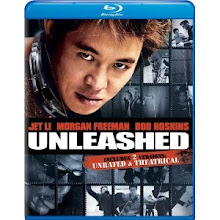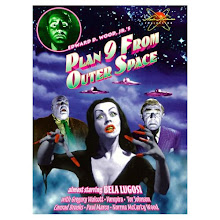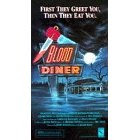By Jason Pyles
After watching a movie like this, it’s nearly impossible to resist the temptation to discuss its target, which in this case, is the American justice system. Indeed, the object of movies like this is to antagonize us into some heated debate with one another or ourselves. We are supposed to be emotionally stirred, as well as entertained.
In this way, “And Justice for All” works, though it’s not without its problems. I liked its “day in the life” approach to showing us defense attorney Arthur Kirkland’s challenges. It’s great when a movie can enable us to step outside our lives and see what another person’s problems are.
But because it’s a movie, with limited time to tell its stories, the cases we see are covered with relative brevity and most of them are fantastical. I know it’s not impossibility, but come on, a judge who’s a rapist — and he happens to be our hero’s arch enemy. Movies “swing for the fence” to ensure that we’re sufficiently entertained, but for me this often detracts from my willingness to become emotionally involved because it’s so unlikely. Also, the insufficient coverage of each of his defendants made it more difficult for us to really become emotionally invested in each person’s plight. Consider how much more perverse it all would have seemed had we gotten to know the rape victim better.
I think what is a little unusual about this film is its peculiar tangents, such as the wacky helicopter ride, and Jeffrey Tambor’s plate-chucking extravaganza, and the suicidal judge in general. Now, before anyone writes me, I realize that these two characters’ mental break-downs were supposed to depict the madness that comes from being submerged in such a flawed system. I get it, but it is still a weird depiction.
At times, this movie is unmistakably trying to be funny, which I thought was bizarre. Perhaps the following comment isn’t too unusual, but I’m always surprised when a serious “message movie” like this takes the time to be goofy.
Let me tell you a story that’s not directly related to this movie:
I am a reporter for my local newspaper, and I cover the criminal courts. Recently I covered a high-profile murder case where two young men got in a fight over a woman and one was shot. It was a remarkably ambiguous case with no smoking gun, and to prove that assertion concisely, I heard more than one lawyer say it was the hardest case they’d ever worked on.
After sitting in on the proceedings, taking careful notes, I concluded that the kid was innocent. It was an unfortunate situation of being in the wrong place at the wrong time, and I think it was ultimately an accident or self defense. I personally believe the kid who got shot was the aggressor and the one who brought the gun (which by the way, was never found). But in the end, the jury found the defendant guilty of voluntary manslaughter, which carries a potential sentence of three to 15 years in prison.
When the defendant heard the verdict, his reaction was one I’ll never forget: He was visibly shocked, and it is my opinion that his horrified weeping and utter astonishment was that of an innocent man.
During the trial, it was more or less established that he was a pretty good kid, insomuch that the judge let him go home with his family on probation to await his sentencing. (How often have you heard of someone convicted of murder permitted to stay at home with his family for two months?) I’ll also be covering his sentencing which is set for September.
Anyway, I was appalled, during the trial, to notice members of the jury sleeping in the courtroom during the defense attorney’s remarks. I believe they had already made up their minds or simply didn’t care too much about this young man’s life that was hanging in the balance.
This experience was enough to convince me, as this movie suggested, that our legal system isn’t perfect (which is reason enough to seriously reconsider the death penalty). But as the movie depicted with Pacino’s character, there are still good people who try their best to get it right, like Andy Howell, for instance.
All that being said, though I’m not completely at peace with the way things work in the American legal system, I haven’t been able to come up with a better idea yet, and I believe we typically try our best to give people a fair trial, so I guess it will have to do for now.
See? The movie worked. It got me ranting. Good selection, Karl.
Note: We've got one more week for this movie, then we'll be doing Barrett Hilton's recommendation, which is "Badlands," starting Sunday. And next week, I think we'll probably go back to weekly movies, instead of biweekly.





























































